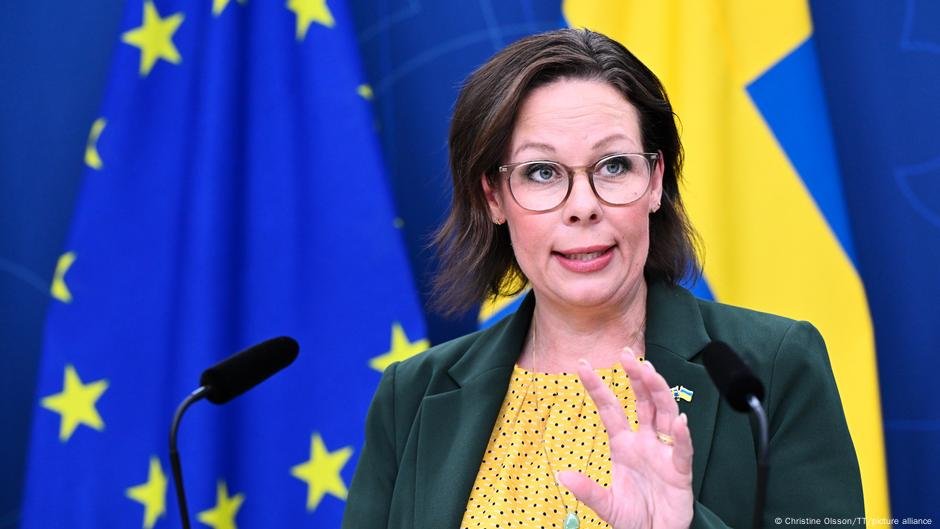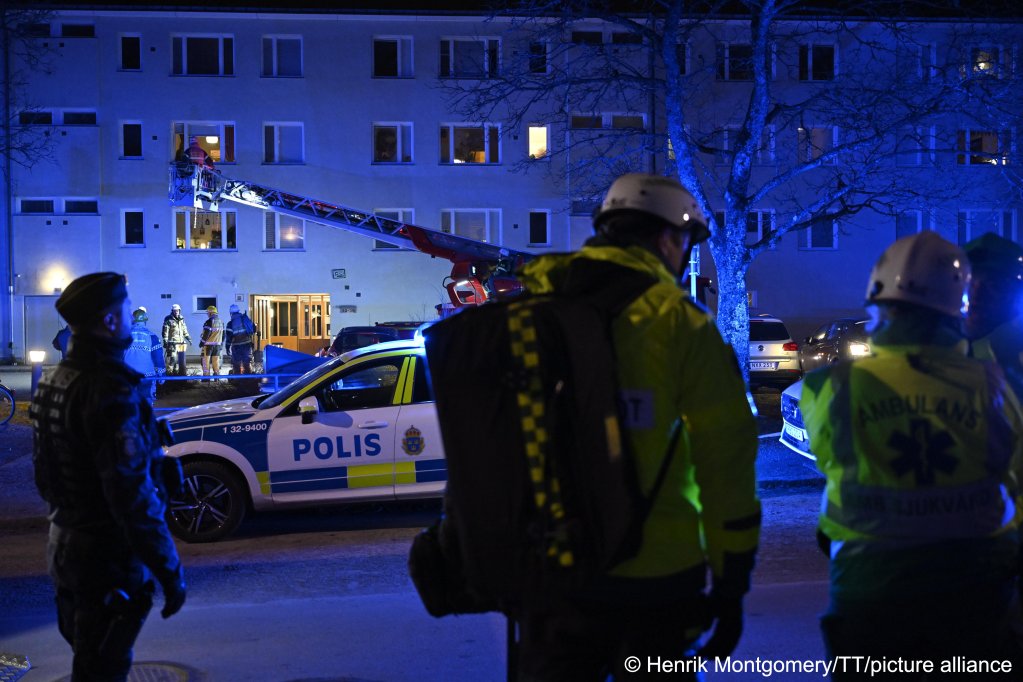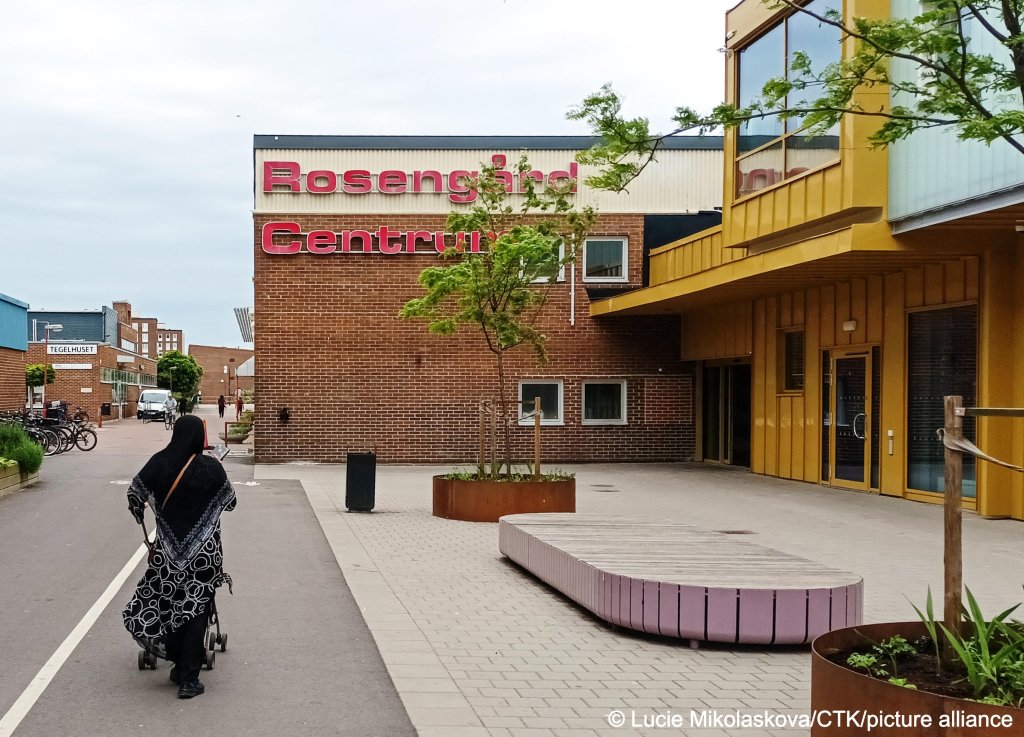The Swedish government announced on Thursday that the number of people leaving Sweden will exceed the number of arrivals in 2024. That means the country has recorded a net emigration for the first time in over 50 years.
"According to the Migration Agency’s forecast," wrote the Department of Justice, which is also home to the Swedish Migration Minister Maria Malmer Sternergard, "Sweden looks set to receive the lowest number of asylum seekers since 1997, and for the first time in over 50 years, Sweden has net emigration."
Sternergard gave a press conference on Thursday at the Ministry of Justice. She said during the conference that "while the number of asylum seekers in the EU has stabilized at a high level, the decline in Sweden continues. Up to and including week 30 of this year, a total of 5,600 asylum applications have been registered."
'Lowest number of asylum seekers since 1997'
The minister said that was a decrease of 27 percent compared to the corresponding time period last year. In fact, the press release stated that according to the Migration Agency’s forecast, "Sweden looks set to receive the lowest number of asylum seekers this year since 1997."

Sternergard said this decrease was due to the "government’s work" and its migration policy, claiming that the two had "yielded results." She added that the move towards what she called "sustainable immigration" is "necessary for us to be able to strengthen integration and reduce exclusion."
In 2023, stated the Ministry of Justice, emigration was particularly high from people living in Sweden who had been born in Iraq, Somalia and Syria. They believed that their efforts to improve the registration of the population had contributed to this outcome.
Also read: Nordic states to tighten collaboration on migrant deportations
Stricter migration policy measures announced
In July, the Swedish government announced some stricter measures regarding migration policy, including tightening the conditions for family reunification.
On July 11, it said that from now on, a special investigator must conduct reviews of the Swedish regulations for granting residence permits based on family affiliation. It said this measure was aimed at "achieving a restrictive and effective regulation for family immigration."

The regulator was expected to look at limiting the circle of relatives that would be eligible for residence permits. It is also being asked to look into tightening the DNA analysis used to prove biological kinship. The report from the inspector will be submitted on August 25, 2025.
All these types of measures, stated the Swedish government press release, are designed to deal with the "major challenges with growing exclusion," present in Sweden. The government has said that "extensive immigration in recent years, combined with a lack of integration," has contributed to these challenges.
Also read: Stricter rules on family reunification, as part of political pact with right
'Sweden looks into the abyss'
The Geopolitical Intelligence Service GIS consultancy service, founded in Liechtenstein in 2011, says it provides business leaders and policy makers with "genuine and relevant geopolitical forecasts."
Earlier this year, in February, GIS published an article entitled "Sweden looks into the abyss." It claimed that the "Scandinavian nation of 10.6 million people is facing a national crisis because of its failure to successfully integrate record numbers of immigrants."

At that time, the article claimed that foreign-born citizens account for 20 percent of the nation’s population, and that its famed welfare state and generous benefits system was now being used as a "warning example," to other developed states that might attract the same kinds of problems if more people arrived to claim the generous allowances.
An oft-cited figure, particularly by right-wing critics of migration, is that Sweden "carries the dubious distinction of having the highest rate of gangland killings in Europe." Many of those gangs appear to be among the migrant populations. The Swedish police have claimed that it is "hard bordering on impossible," for them to operate in certain suburbs of the country where they say "local clans rule."
Also read: Sweden to make it harder for non-European migrants to claim benefits
Problems with integration
According to GIS, the main cause of this "downward trend" in Sweden, where Swedish nationals were "beginning to flee and it was becoming difficult for Sweden to recruit high-level talent from abroad," is "a combination of an open-door migration policy with no accompanying policy to help the newcomers integrate."
The report by Stefan Hedlund, a professor of Russian Studies at Uppsala University, said that in some Swedish neighborhoods, "almost all residents are immigrants, ... unemployment rates are very high and .. the children of immigrants go to schools where no other children, often not even teachers, are proficient in Swedish." According to Hedlund, "this has served as an incubator for crime, as gangs take over where society fails."

The website Media Bias Fact Check rates GIS as publishing mostly credible factual information but often with a right-of-center bias.
Residence permits slightly increased in first half of 2024
The European migration news portal Schengen News wrote on Thursday that more than 47,700 people obtained residence permits in Sweden between January and June 2024. Employment, it reported, "emerged as the most common reason for granting permits during the first half of 2024."
In the first six months of 2024, Sweden granted citizenship to 32,890 people, and the open case load reportedly stands at 92,125. The grant rate in the first half of 2024 represents a five percent increase compared to the same period in 2023, reported Schengen News. Most of the permits granted came via employment, family reunification, studies and asylum, continued the migration portal.
Schengen News said that "the fact that work was the most common reason for granting permits highlights the country’s need for foreign workers." A EURES report in 2023 highlighted that Sweden was facing labor shortages in 39 occupations, including healthcare and education.
To ease this surplus, Sweden has introduced a new processing system for highly skilled workers. It promises to try to process applications within fewer than 30 days.
Also read: Child asylum seeker raises even more money for charity in Sweden
